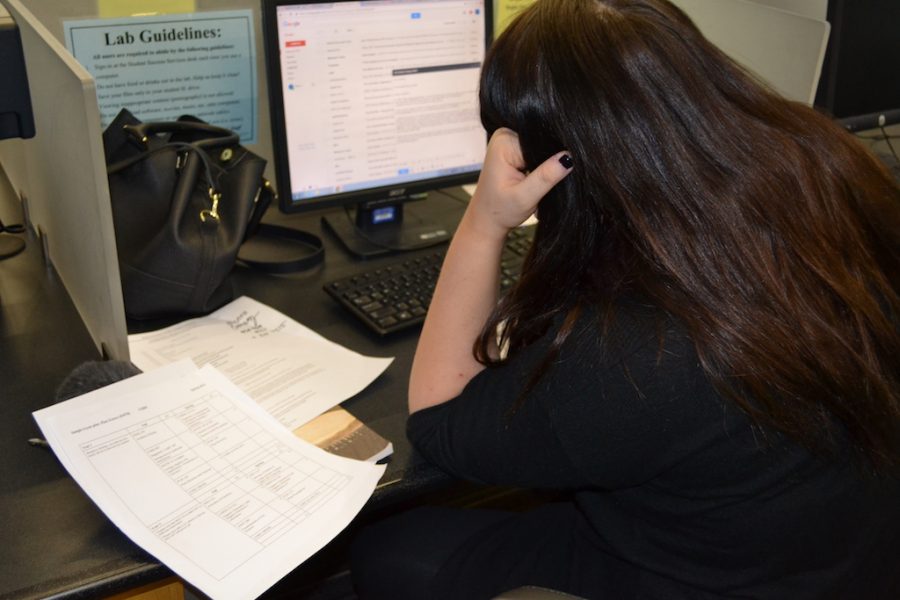50% of AACC students seek mental health aid
Stress often leads to anxiety, AACC counselors say.
February 1, 2017
Emily fell into severe depression in her second semester at a Boston liberal arts college after a guy she considered a friend sexually assaulted her.
Her motivation to succeed in school disappeared, said Emily, who asked to be referred to by her first name. She loved school her first semester and joined a sorority, she said. After her sexual assault, though, she dreaded the thought of even leaving her dorm room.
Emily used sleeping and eating as a way to cope rather than telling anyone. She eventually decided to talk to a psychiatrist, who diagnosed her with depression as well as anxiety.
She moved home to Annapolis and began attending classes at AACC in Spring 2016. Emily has regular meetings with a counselor and releases her pent-up anxiety at the gym.
Emily is not alone in her battle with mental illness. More than half of AACC students struggle with a mental illness, according to the AACC counseling department.
Though mental illness may not be a concern when a student begins college, young adulthood is a critical period for mental health, Diane Passero, a licensed clinical counselor at AACC, said. In 2014, an estimated 9.8 million U.S. adults ages 18 and older had a serious mental illness, including 1.7 million ages 18 to 25, according to the Substance Abuse and Mental Health Services Administration.
“I think a lot of people don’t realize how common mental illness is,” sophomore Anne Aldrich, who struggles with anxiety, said. “It’s a part of life just like getting the flu so there is no need to be embarrassed. Just ask for help.”
A variety of issues, including the growing use of social media, overbearing parents, stress over graduating on time and focus on finding a career, contribute to the growing number of students experiencing mental health issues, psychological experts have said.
“Social media has created a more fast-paced world in general with more stressors than before for adolescents,” Dr. Jason Addison, service chief of the Young Adult Unit at Sheppard Pratt Health System, said.
He observed how social media can prompt unfavorable comparison among peers, further intensifying symptoms of mental illness.
“I start out the day feeling comfortable in my skin until I check Instagram and see a girl much prettier than me on my feed,” freshman Sidney Smith said in a focus group on mental health. “I immediately second guess everything I loved about myself only a minute before.”
LGBT college students have an increased risk of developing mental health issues. Despite the positive public movements surrounding coming out and gender issues, not all families or communities are accepting of these individuals. This unacceptance can make life especially difficult for those who are coming to terms with their identities, according to the American Psychological Association.
Sophomore Davis Andrews said: “Coming out was the most anxiety-provoking moment in my life. … Luckily every time I come out, I feel less anxious.”












